In September 2022, Advance CTE and ECMC Foundation announced the second cohort of The Postsecondary State Career Technical Education (CTE) Leaders Fellowship at Advance CTE—Sponsored by ECMC Foundation. The Advance CTE — ECMCF Fellows include representation across multiple demographic categories reflecting the Fellowship’s goal of intentionally building a postsecondary leadership pipeline for underserved populations in Career Technical Education (CTE) that closes racial representation gaps and removes equity barriers to postsecondary leadership advancement.
This month, we’re excited to highlight two members of Advance-CTE’s second cohort of Postsecondary State CTE Leaders Fellows. ECMCF Fellow Caleb Perriton (WY) has experience working and teaching automotive technology internationally and understands the limitless potential of a high-quality skills-based education.
Tell me more about your journey to the Fellowship.
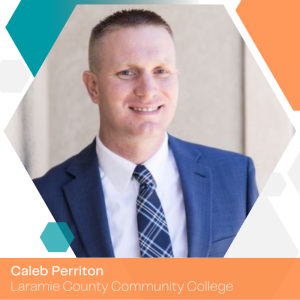 I was made aware of the Fellowship through the Wyoming State CTE Director Michelle Aldrich who is a friend of our college, and she alerted our dean who then passed the information down to me. I have a lot of experience working with under-resourced learners, non-English Hispanic learners in particular, and so the themes of the Fellowship really spoke to the passion I have for creating opportunities for these learners to gain skills that can drastically improve their lives. I don’t have the chance to work directly with this population in southern Wyoming but the Fellowship allows to have a national view of the policies that connect these learners with the knowledge and job skills they need to integrate into society.
I was made aware of the Fellowship through the Wyoming State CTE Director Michelle Aldrich who is a friend of our college, and she alerted our dean who then passed the information down to me. I have a lot of experience working with under-resourced learners, non-English Hispanic learners in particular, and so the themes of the Fellowship really spoke to the passion I have for creating opportunities for these learners to gain skills that can drastically improve their lives. I don’t have the chance to work directly with this population in southern Wyoming but the Fellowship allows to have a national view of the policies that connect these learners with the knowledge and job skills they need to integrate into society.
In the trades industry, we face a significant shortage of mechanics and trades workers, and we just don’t have technicians who are qualified to take these jobs. We need to consider how to bring more non-traditional students into these programs, and I believe that access to the necessary training is one of the primary barriers keeping willing workers out.
What skills or areas have you experienced the most growth in the program?
I am certainly grateful to be learning alongside my colleagues in this Fellowship. My colleagues are brilliant, my coach is brilliant, but I wouldn’t necessarily consider myself an academic. I like to work with people, I like to fix things, and I like to teach people skills, but through this Fellowship I’ve realized the power of using data to tell your story.
Have you been tapped for new or more advanced roles within your organization as a result of your experience in the Fellowship?
Since the Fellowship started, I’ve been promoted from my role as a pathway coordinator to a program director with managerial duties. I was also asked to sit in as an interim dean while our dean was on sabbatical. As a pathway coordinator, I was responsible for recruiting students and engaging with industry to secure employment opportunities. As program director, I’ve transitioned to overseeing all of the academic aspects the seven or eight programs in my department as well as the performance management of about a dozen faculty. I am eager to bring experiences and knowledge gained through the Fellowship to my colleagues that have only ever lived in Wyoming. Previously, I was a campus president of a large technical trade school, and in the future, if I were looking to make another transition, I am confident that I could leverage the Fellowship network to find additional opportunities.
How has your experience in the fellowship helped you explore new spaces or positions in postsecondary state CTE leadership?
My experience in the Fellowship has allowed me to network in more impactful ways with the CTE leaders in my state. Dr. Aldrich, in particular, has had a bit of influence on my real-world project. She was actually a faculty member at one of the schools I’ve targeted for expanding opportunities for learners to explore trades education as a viable option after high school. I’ve been able to network with just about every level of state leadership here in Wyoming, which is great.
I’m always open to new experiences. I know that there is a lot of love and support for CTE and the trades in this state and I’m grateful for all of the doors that have been opened.
Have these new connections changed your expectations of CTE at the postsecondary level?
My network has been expanded for sure. My expectations have certainly shifted. I think we need to have higher expectations for our learner’s educational experiences. There are opportunities to bring in more of those learners, the population that is under 21 and not targeted for a university, to recognize the benefits of these programs. This looks like improving our strategies for recruitment and enrolling learners in programs that are relevant to their needs and also those of our industry partners.
If I could wave a magic wand to eliminate a barrier and make these programs more accessible, I’d want to target the administrative process of enrolling learners. I could have a curriculum for a new light-duty diesel class ready by this afternoon, but typically, you’re looking at a runway of at least two years for learners to go through the process of enrolling and securing financial aid before they can even take the class. Unfortunately, the result is that we get bogged down with administrative processes that end up omitting some really willing learners and eventual earners in our communities.
Ultimately, I think one of the most powerful tools that we have to recruit more learners is the way that we tell the story about the CTE programs. A lot of learners want a traditional college experience, and you can still have that in the trade school. An automotive or diesel electrical class is just as academically rigorous, if not more so than any physics class on a university campus. These courses deal with machinery that’s worth a quarter million dollars and has to tow 80,000 pounds down the road. With the proper training and a few years of experience, it isn’t unrealistic for a diesel mechanic to make between $100,000 and $150,000. We need to dispel the stigma around trade schools and find a better way to blend these programs through higher-level education institutions across America.
If you have any questions, contact Caleb Perriton by email at [email protected]


 Distance learning breaks down geographical barriers, enabling students from remote or underserved areas to access high-quality CTE programs. By offering online courses, CTE programs can reach a broader audience of learners, including those who may face obstacles in attending traditional in-person classes. This increased accessibility can result in a more diverse and inclusive CTE learner population. The fifth principle of
Distance learning breaks down geographical barriers, enabling students from remote or underserved areas to access high-quality CTE programs. By offering online courses, CTE programs can reach a broader audience of learners, including those who may face obstacles in attending traditional in-person classes. This increased accessibility can result in a more diverse and inclusive CTE learner population. The fifth principle of 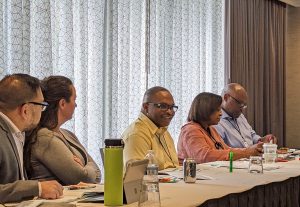
 Overview
Overview 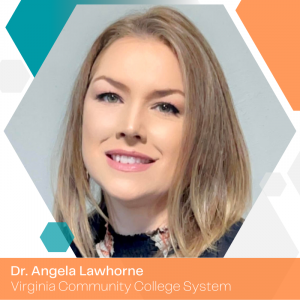 Tell me more about your journey to the Fellowship.
Tell me more about your journey to the Fellowship.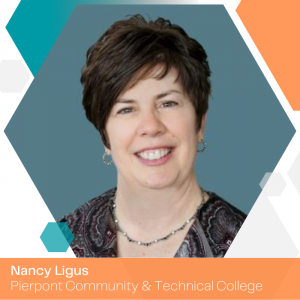 Tell me more about your journey to the Fellowship.
Tell me more about your journey to the Fellowship.
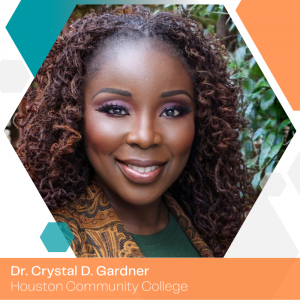 Dr. Crystal Gardner currently serves as the Instructional Supervisor for the Houston Community College (HCC) Alternative Teacher Certification Program (ATCP). In this role, she oversees instructional operations, program development, quality control, and compliance management. Joining the Fellowship was an exciting opportunity to fully immerse herself in the world of career and technical education (CTE) through equity-aligned learning and real-world practicum.
Dr. Crystal Gardner currently serves as the Instructional Supervisor for the Houston Community College (HCC) Alternative Teacher Certification Program (ATCP). In this role, she oversees instructional operations, program development, quality control, and compliance management. Joining the Fellowship was an exciting opportunity to fully immerse herself in the world of career and technical education (CTE) through equity-aligned learning and real-world practicum. “When our passion fuels our purpose, we will always blossom where we have been planted and do great work as servant leaders.”
“When our passion fuels our purpose, we will always blossom where we have been planted and do great work as servant leaders.”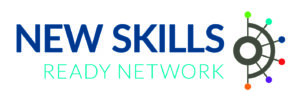 As part of ongoing blog topics providing updates on this initiative, Deshaun Mars, Vice President, Global Philanthropy (Job Skills,) and Brice Thomas, Policy Associate engaged in a discussion to highlight JPMC’s view of the initiative and how this work advances JPMC’s philanthropic portfolio and ultimately building high-quality local and state career pathway systems.
As part of ongoing blog topics providing updates on this initiative, Deshaun Mars, Vice President, Global Philanthropy (Job Skills,) and Brice Thomas, Policy Associate engaged in a discussion to highlight JPMC’s view of the initiative and how this work advances JPMC’s philanthropic portfolio and ultimately building high-quality local and state career pathway systems.